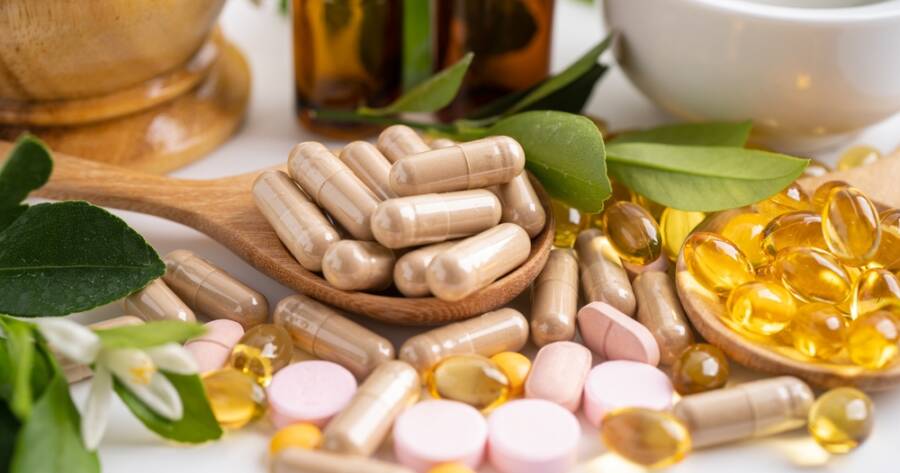Herbal supplements have surged in popularity as people seek natural remedies for everything from boosting immunity to improving mental clarity. The global herbal supplement industry is worth billions, but with limited regulation and varying levels of scientific support, many consumers are left wondering: Are these products truly safe and effective? This article delves into the booming herbal supplement market, explores its regulation, and examines expert opinions on their benefits and potential risks.
The Growth of the Herbal Supplement Industry
The demand for herbal supplements has skyrocketed in recent years. According to a report by Grand View Research, the global dietary supplements market was valued at over $150 billion in 2023, with herbal supplements making up a significant portion. Popular products include:
- Turmeric – Promoted for its anti-inflammatory properties.
- Ashwagandha – Used for stress relief and energy boosting.
- Ginseng – Believed to enhance cognitive function and stamina.
- Echinacea – Commonly taken to support immune health.
- Milk Thistle – Marketed as a liver detoxifier.
Despite their popularity, not all herbal supplements are created equal, and some may not live up to their claims.
How Are Herbal Supplements Regulated?
Unlike pharmaceutical drugs, herbal supplements do not undergo the same rigorous testing and approval process before hitting the market. In the United States, the Food and Drug Administration (FDA) regulates dietary supplements under the Dietary Supplement Health and Education Act (DSHEA) of 1994. However, this law does not require manufacturers to prove the safety or effectiveness of their products before selling them.
Key regulatory points include:
- Manufacturers are responsible for their own quality control – There is no mandatory pre-market testing.
- Label claims are not strictly monitored – Companies cannot claim to “cure” diseases, but vague terms like “supports immune health” are permitted.
- Post-market oversight is limited – The FDA can only take action after a product is proven harmful.
In contrast, countries like Canada and European Union nations have stricter regulations. Health Canada, for example, requires supplements to have a Natural Product Number (NPN), indicating that their safety and efficacy have been reviewed.
Are Herbal Supplements Effective?
While some herbal supplements have strong scientific backing, others lack conclusive evidence. Here’s what experts say about some of the most popular herbs:
- Turmeric (Curcumin): Studies suggest that curcumin, the active compound in turmeric, has anti-inflammatory benefits. However, its absorption in the body is low unless paired with black pepper (piperine).
- Ashwagandha: Clinical research supports its role in reducing stress and anxiety, with some studies showing it can lower cortisol levels.
- Ginkgo Biloba: Often used for cognitive function, but recent studies suggest its effects may be minimal, especially in preventing dementia.
- Echinacea: Some research indicates that it may reduce the duration of colds, but results are mixed.
- CBD (Cannabidiol): Popular for pain and anxiety relief, but its regulation is inconsistent, leading to concerns about purity and dosing.
Experts advise consumers to check for peer-reviewed studies before taking any supplement and to consult a healthcare provider, especially if they have underlying health conditions or take prescription medications.
Potential Risks and Side Effects
Despite their “natural” label, herbal supplements can pose risks, particularly when taken without proper guidance. Some potential dangers include:
- Contamination and Mislabeling: There is concern that some herbal supplements tested contained ingredients not listed on their labels, including fillers and contaminants.
- Drug Interactions: Some herbs can interfere with medications. For example, St. John’s Wort can reduce the effectiveness of birth control pills and antidepressants, while ginseng may affect blood sugar levels.
- Toxicity and Overdosing: High doses of certain herbs, such as kava or comfrey, have been linked to liver damage.
- Allergic Reactions: Some individuals may experience allergic responses to herbal ingredients, particularly those derived from flowers and plants.
How to Choose Safe Herbal Supplements
To ensure safety and effectiveness, consider these expert-backed tips before purchasing herbal supplements:
1. Look for Third-Party Testing
Reputable brands often have their products tested by independent organizations like USP (United States Pharmacopeia), NSF International, or ConsumerLab. These seals indicate that the product has been tested for purity and quality.
2. Research the Manufacturer
Choose brands with transparent sourcing and good manufacturing practices (GMP-certified). Avoid companies that make exaggerated health claims.
3. Check the Ingredient List
Ensure the supplement contains the active ingredient in a meaningful dose. Avoid products with excessive fillers, artificial additives, or proprietary blends that don’t disclose exact amounts.
4. Consult a Healthcare Provider
Before starting any herbal supplement, speak with a doctor or a registered dietitian, especially if you are pregnant, nursing, or taking prescription medication.
Making Informed Choices About Herbal Supplements
Herbal supplements offer potential health benefits, but they are not without risks. With minimal regulation and inconsistent product quality, consumers must be vigilant when choosing supplements. By researching scientific evidence, checking for third-party testing, and consulting healthcare professionals, individuals can make safer, more informed decisions. The herbal supplement industry will likely continue to grow, but prioritizing quality and safety is key to reaping the potential benefits without unnecessary risks.

